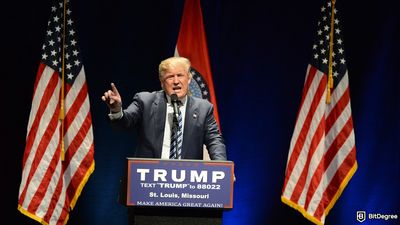Following the collapse of Silicon Valley Bank, the US Federal Reserve has announced a $25 billion backstop. Is this another bailout package for the rich, or does it protect everyone?
The US Federal Reserve, the United States central bank, has launched a $25 billion funding to "help assure banks have the ability to meet the needs of all their depositors."
According to the announcement shared on March 12th, the move will boost banking systems' ability to "safeguard deposits and ensure the ongoing provision of money and credit to the economy."

Did you know?
Want to get smarter & wealthier with crypto?
Subscribe - We publish new crypto explainer videos every week!
What is Polygon in Crypto? (Animated Explainer)


Through the initiative, dubbed Bank Term Funding Program (BTFP), the central bank will give a one-year loan to credit unions, banks, saving associations, and other institutions.
On top of that, the Fed highlighted that the new funding will be an “additional source of liquidity against high-quality securities, eliminating an institution’s need to quickly sell those securities in times of stress.”
The move comes after, on March 10th, the 16th largest bank in the United States, Silicon Valley Bank (SVB), was shut down by California financial watchdog. In the announcement, the Federal Reserve said that it will work on protecting insured and uninsured SVB depositors.
In another statement jointly issued by the Federal Deposit Insurance Corporation (FDIC), Fed, and Treasury Department, the collapse of SVB and New-York based Signature Bank will be treated as a "systemic risk exception." That means all depositors will get their funds without losses to taxpayers. However, shareholders and certain classes of debt holders will get nothing.
According to regulators, all senior management at the banks has been removed. The decision was made after a weekend-long debate on whether the FDIC would exceed its $250,000 limit for insuring deposits.
Treasury Secretary Janet Yellen decided to allow FDIC "to complete its resolution of" SVB and Signature Bank, following recommendations from Fed, FDIC boards, and President Joe Biden.
The joint statement claimed that the move will "reduce stress across the financial system, support financial stability, and minimize any impact on businesses, households, taxpayers, and the broader economy."






















